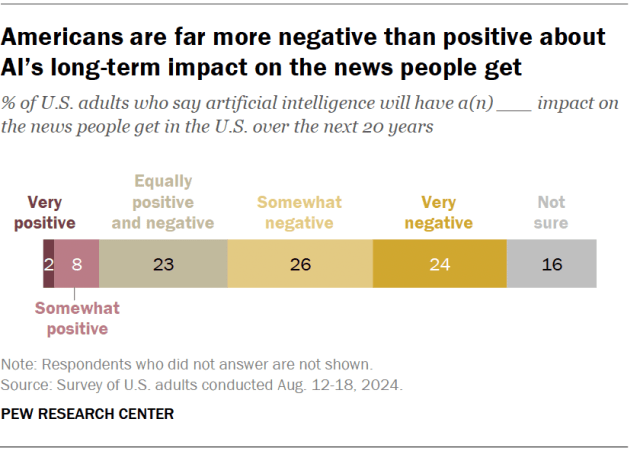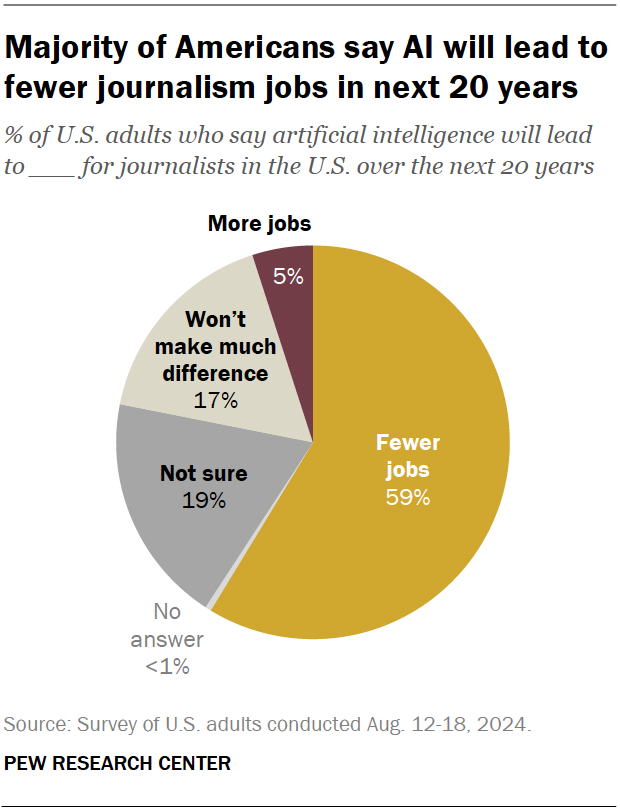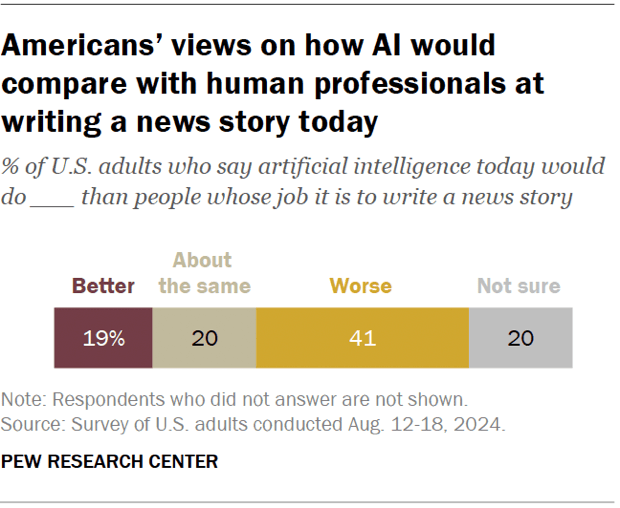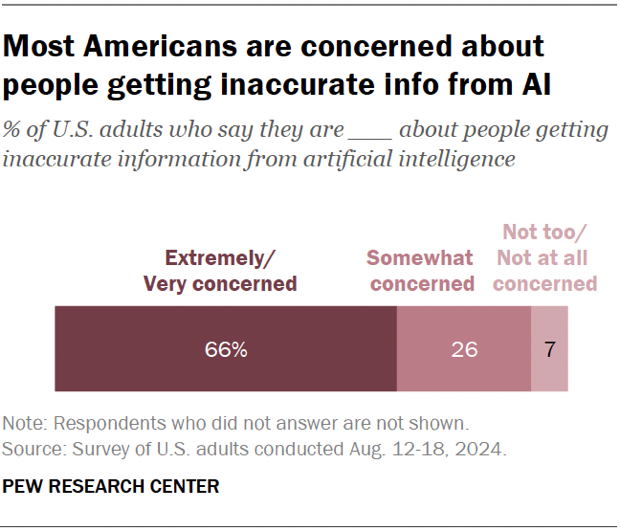Artificial intelligence is already affecting the way news is produced and received in the United States. But Americans are pessimistic about its long-term effect on the news people get and on the already-embattled journalism profession.

Roughly half of U.S. adults say that AI will have a very (24%) or somewhat (26%) negative impact on the news people get in the U.S. over the next 20 years. Just 10% say it will have a very (2%) or somewhat (8%) positive effect, according to a summer 2024 Pew Research Center survey.
About a quarter (23%) say AI’s impact in this area will be equally positive and negative. Another 16% say they are not sure.
Our survey also asked people about the impact AI will have on the U.S. generally over the next 20 years. Even among people who say AI will have a very or somewhat positive impact overall, there are mixed views of the impact it will have on news. While 34% say it will have a positive impact on the news people get, 27% say it will have a negative impact, and 27% say it will have an equally positive and negative impact.
Views on how AI will impact journalists

Looking at the impact on the news industry, 59% of Americans say AI will lead to fewer jobs for journalists in the next two decades. Only 5% say AI will produce more journalism jobs. Others say AI won’t make much difference (17%) or that they are unsure (19%).
Previous Center research also included a survey of AI experts. These experts generally align with U.S. adults overall in saying AI will lead to fewer jobs for journalists and have a negative effect on the news people get over the next 20 years.
Views of AI’s role in news and information today

The survey also asked about how AI performs in today’s news and information environment. About four-in-ten U.S. adults (41%) say AI would do a worse job writing a news story than people whose job it is to do this.
Meanwhile, 19% say AI would do a better job than journalists at writing a news story. Another 20% say it would do about the same.

In addition, 66% of Americans are extremely or very concerned about people getting inaccurate information from AI. An additional 26% are somewhat concerned.
Companies that engineer AI products have acknowledged that their large language models sometimes share false or misleading information, also known as AI “hallucinations.”
Views by political party
Republicans and GOP-leaning independents tend to have much less trust in national news organizations than Democrats and Democratic leaners do. But the groups are largely aligned in their views of the impact of AI on news and journalism.
For example, about one-in-five Republicans (21%) and Democrats (18%) say that AI would currently do better at writing a news story than journalists. Republicans are only slightly more likely than Democrats to say AI will have a negative effect on the news people get over the next 20 years (54% vs. 49%). And virtually identical shares in both parties say they are extremely or very concerned about people getting inaccurate information from AI (67% of Republicans and 68% of Democrats).
Views by education
Americans with at least some college education are more pessimistic than high school graduates about AI’s impact on the news and journalism.
For example, 56% of Americans with at least a college degree and 54% of those with some college education say AI will have a negative impact on the news people get over the next 20 years, compared with 44% of those with less education. Adults with at least some college education are also more likely than those with less formal education to say AI would do worse than journalists at writing a news story today.
Note: Here are the questions used for this analysis, the toplines and the methodology.
